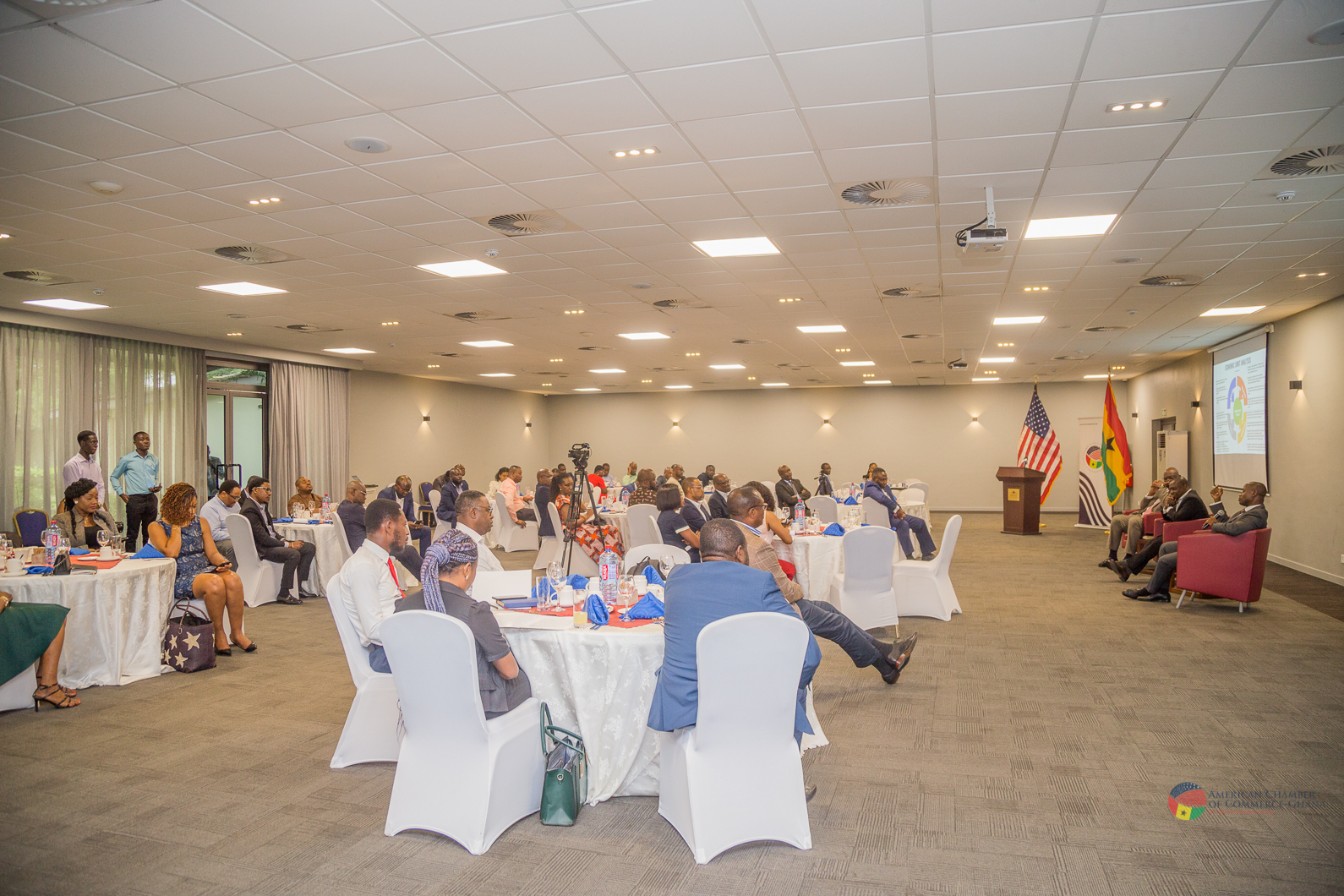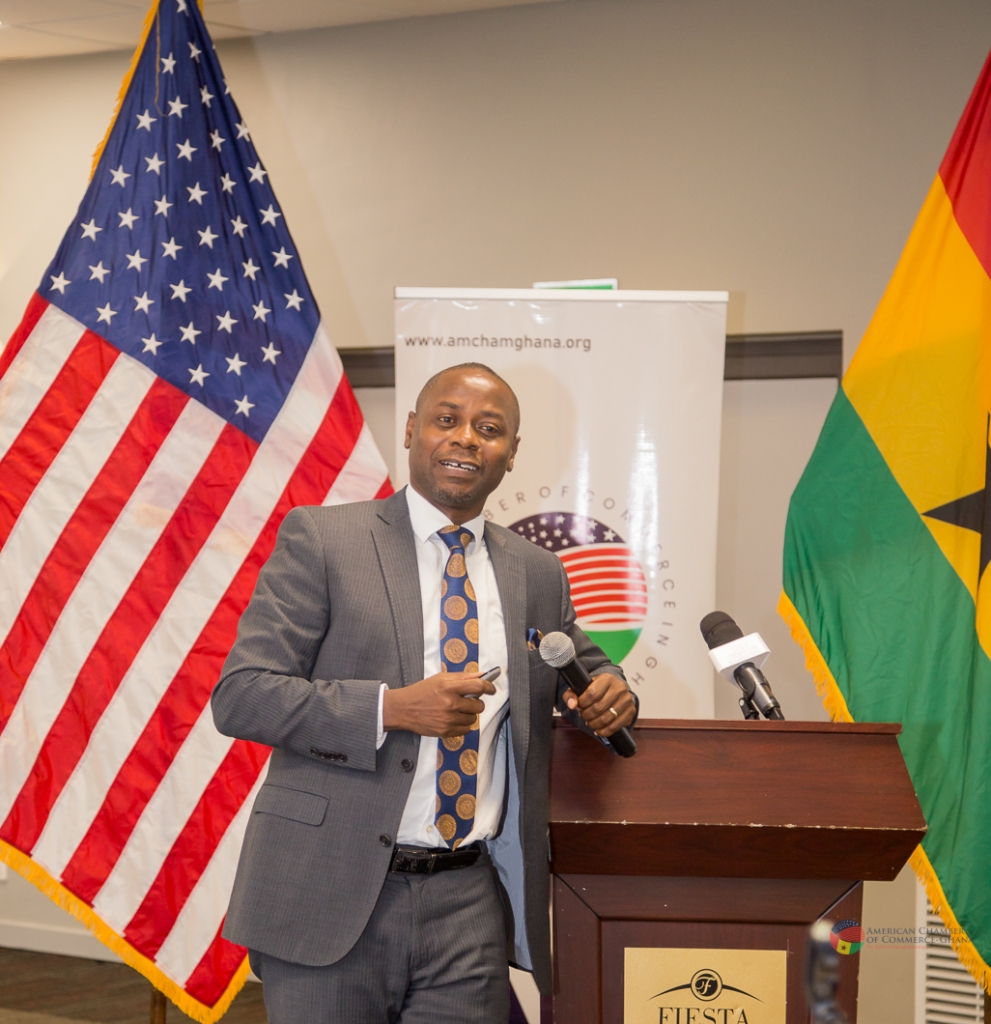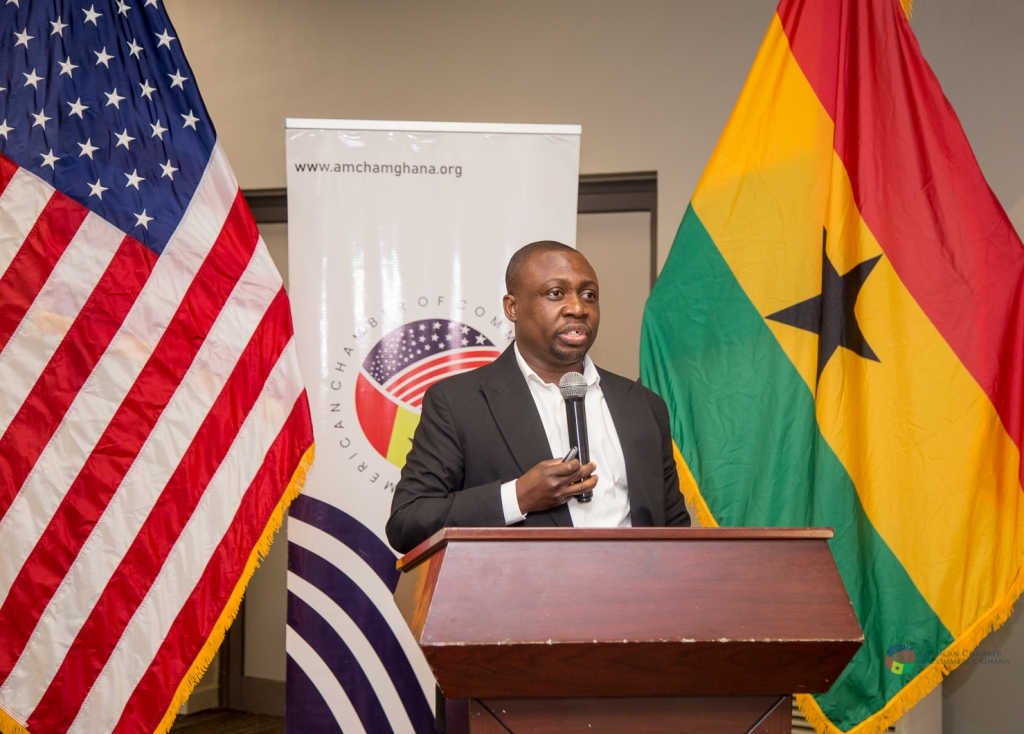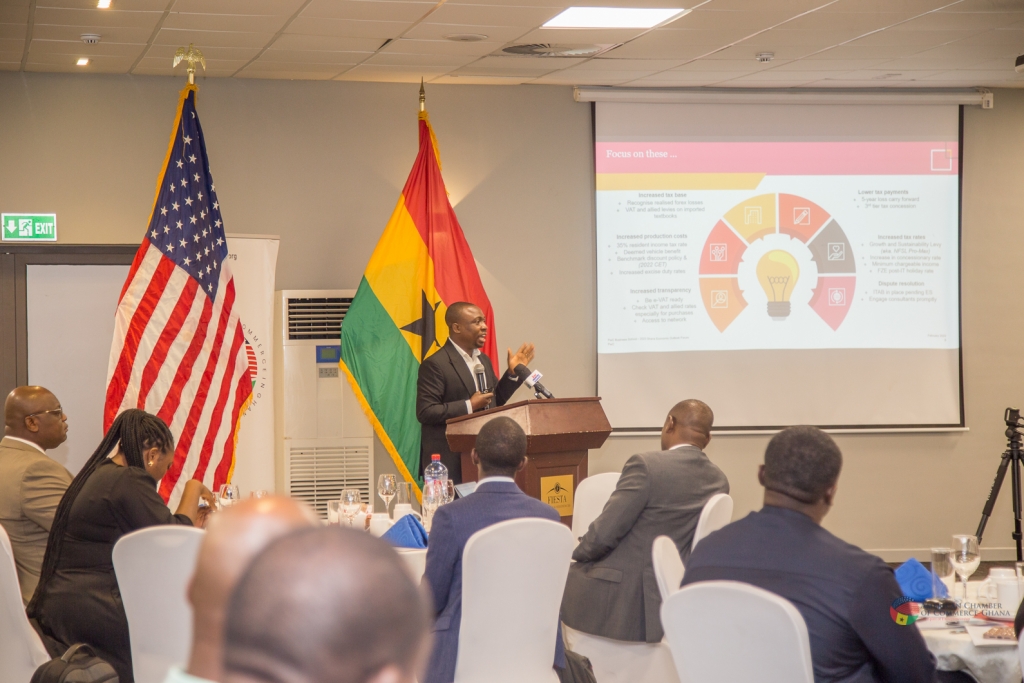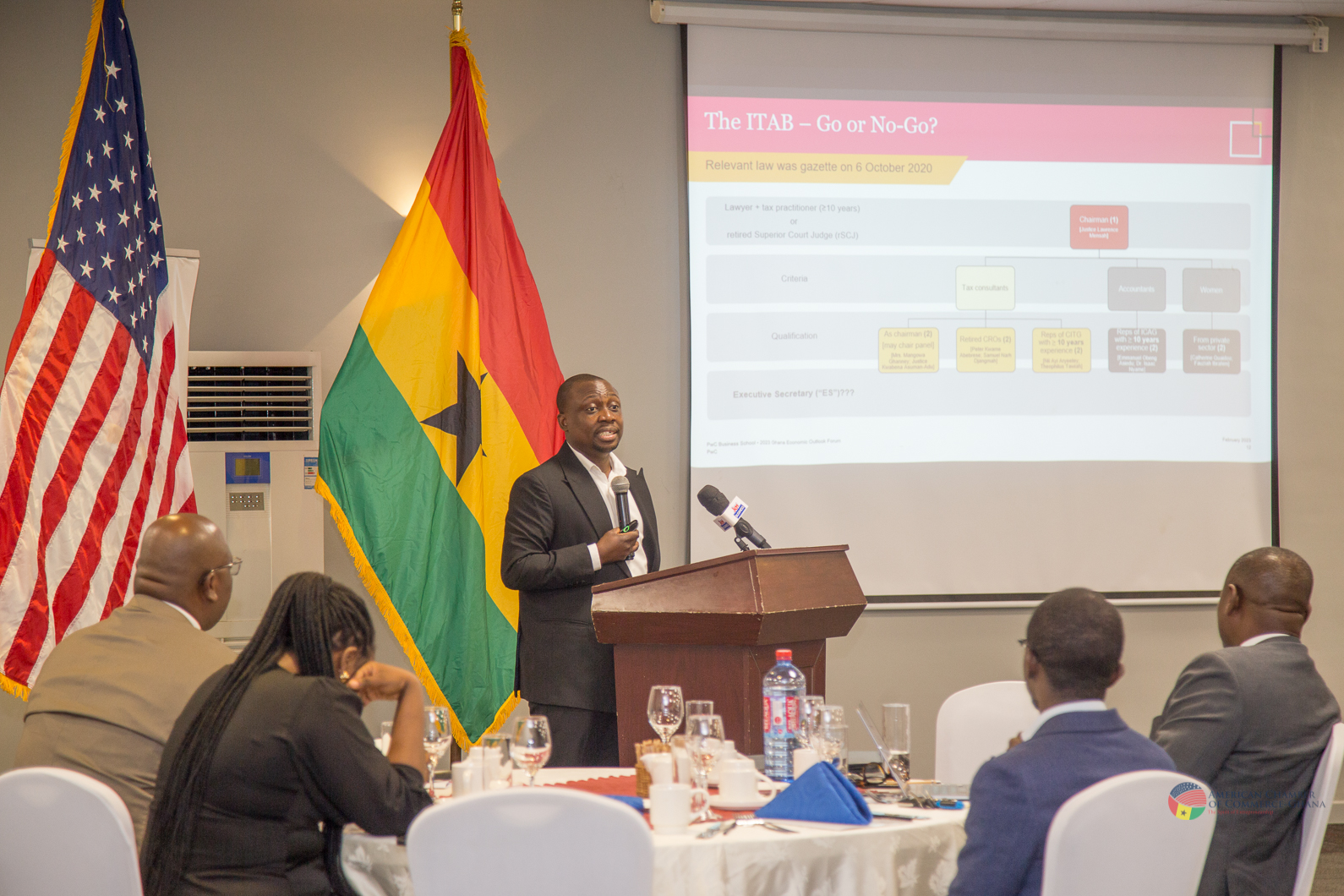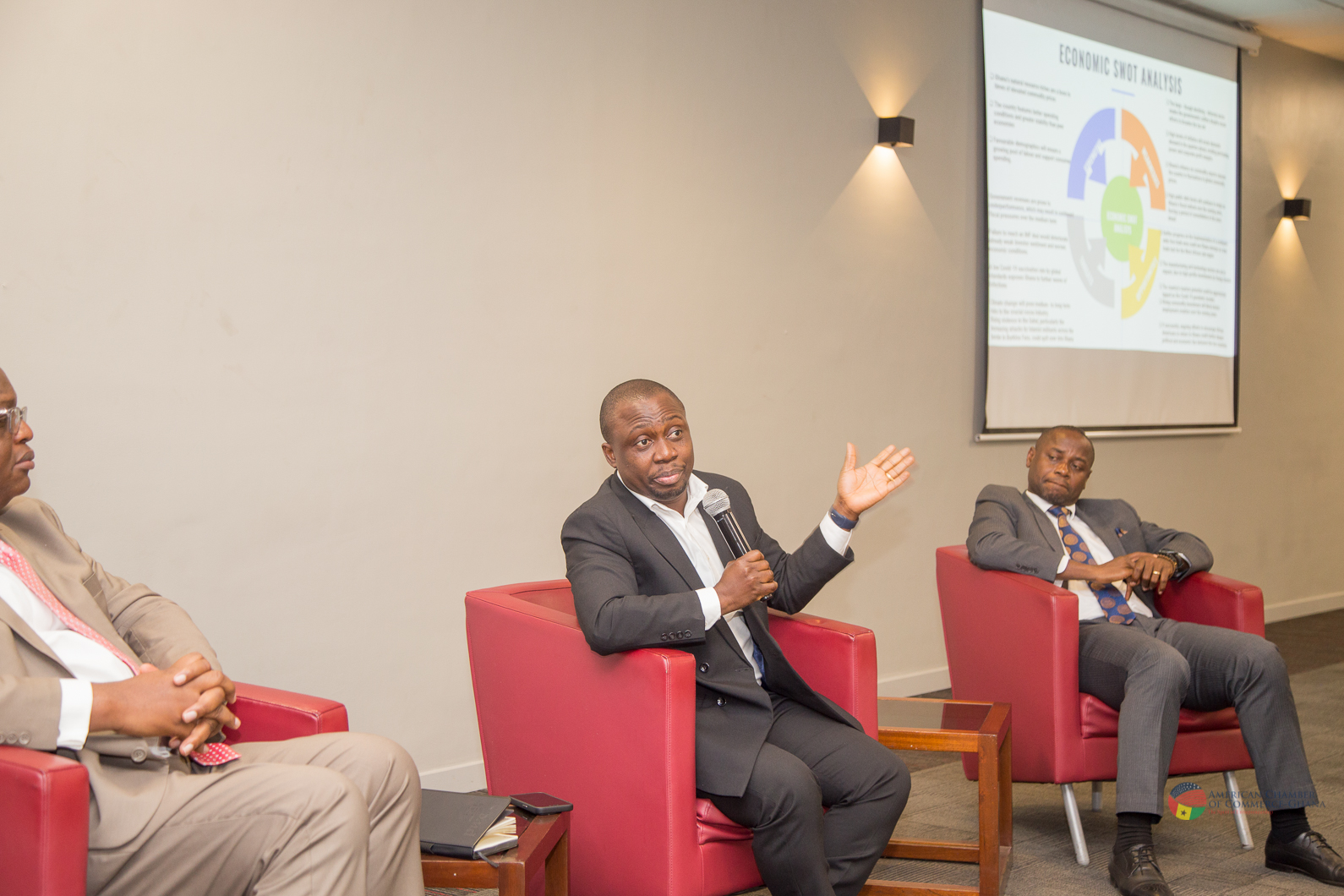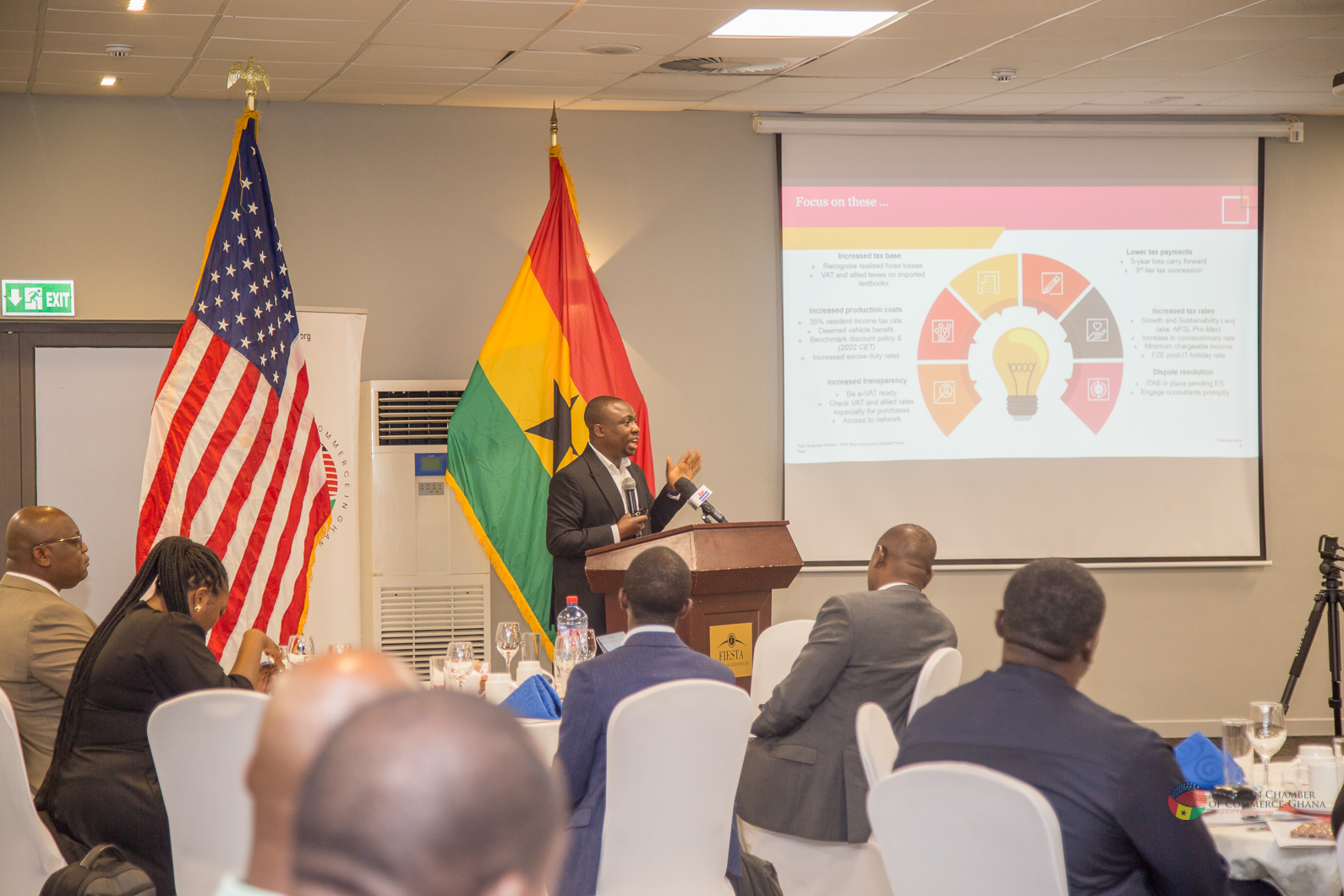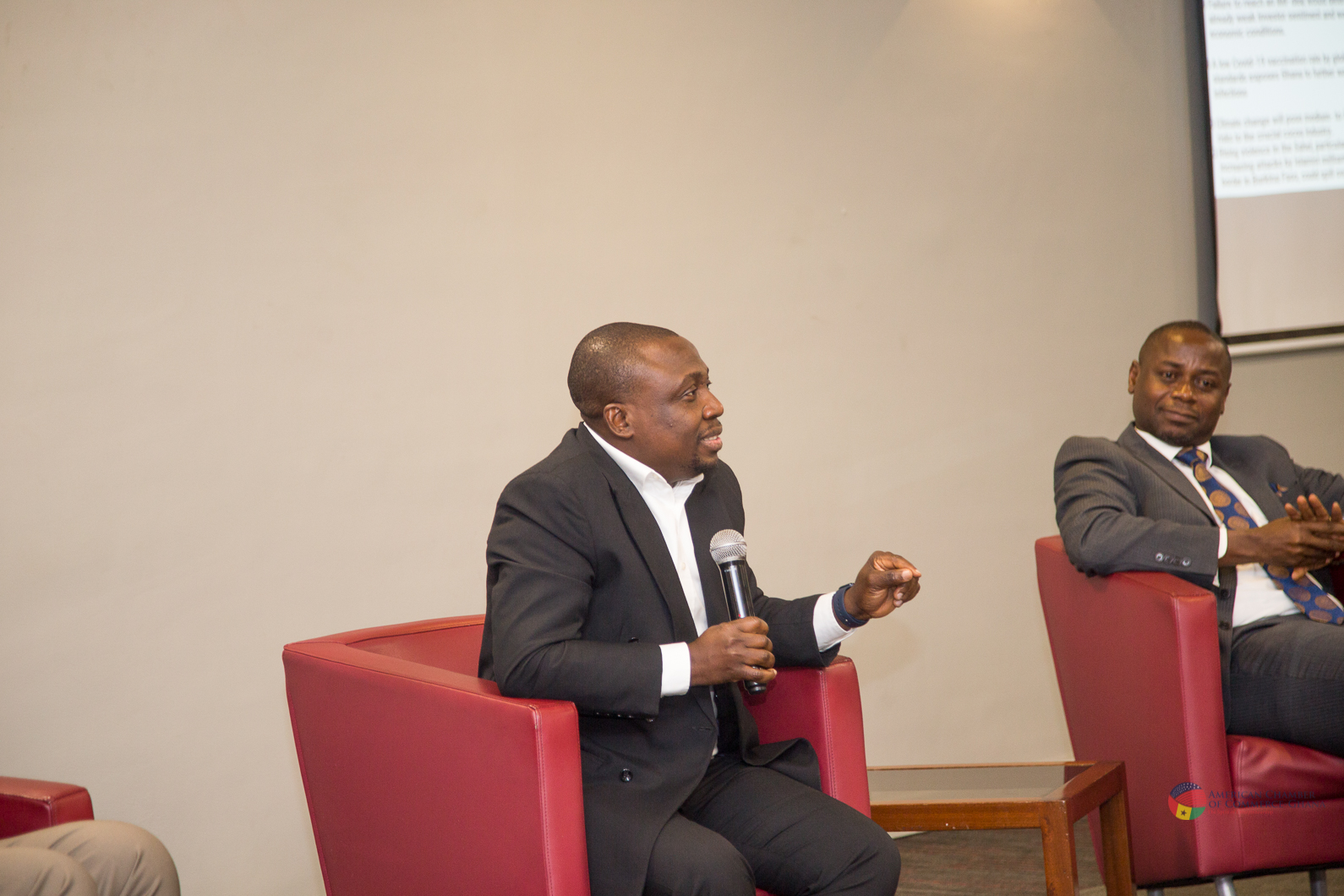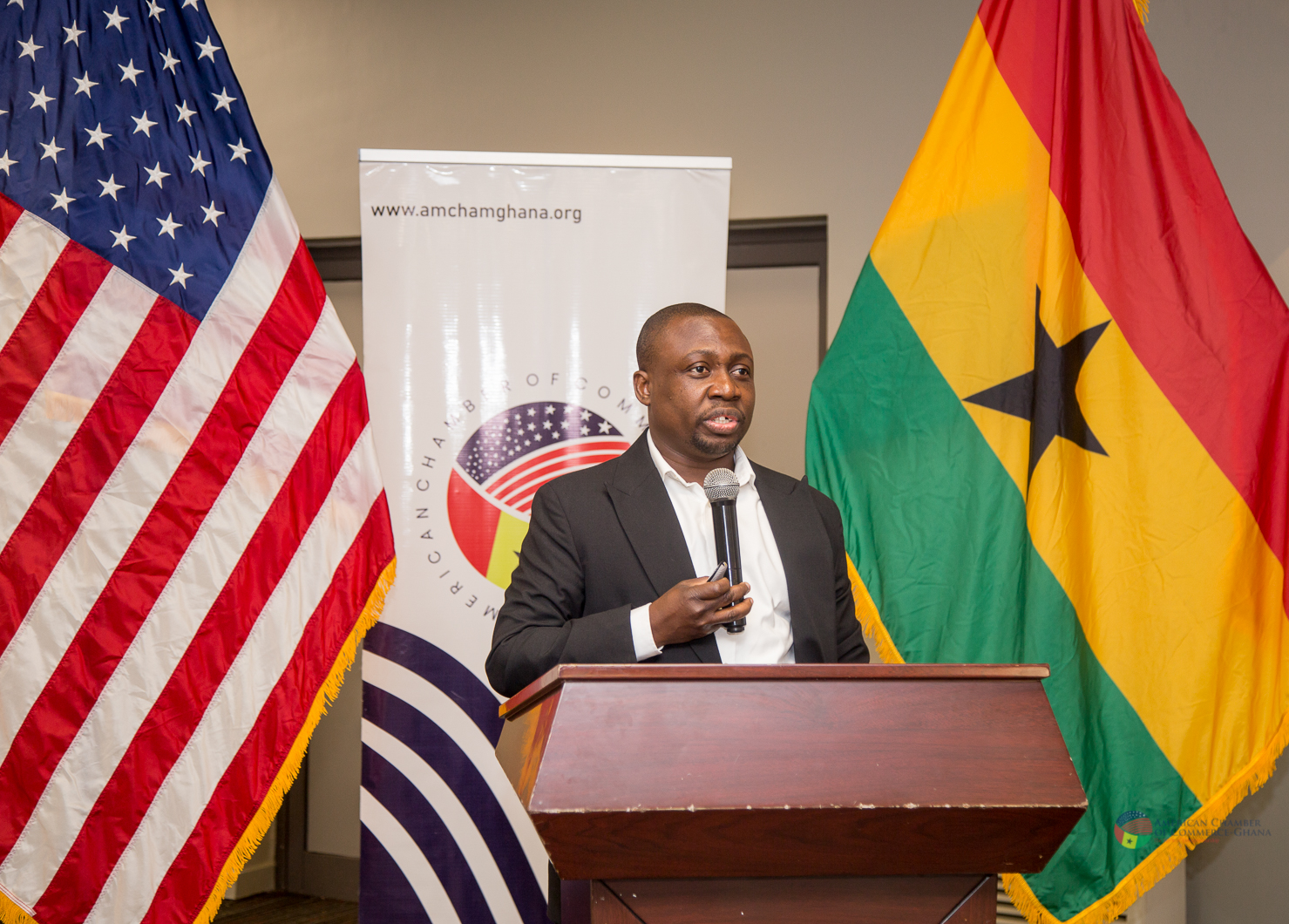The American Chamber of Commerce, Ghana, on Tuesday, February 21, 2023, hosted the 2023 Economic Outlook Forum on the theme, Navigating Through Uncertain Economic Conditions – A Pragmatic Approach.
Ghana’s economy is at a turning point, and the focus of the 2023 Economic Outlook forum was to provide members with insight on how to protect their businesses and work through the various stringent revenue mobilization strategies being adopted by the government of Ghana and as well provide an overview of the general economic outlook for 2023.
Speakers for this year’s forum were Abeku Gyan-Quansah, a Tax Partner at PwC, and Prof. Eric Osei-Assibey, Associate Professor and Dean of the International Programmes Office at the University of Ghana. Their presentations covered practical approaches to avoiding and mitigating the impact of GRA’s current revenue mobilization agenda, the operationalization of the new tax regime, understanding the implications of the impending IMF program, the complexities of the government’s Domestic Debt Exchange Programs, projected micro and macroeconomics conditions and their impact on the businesses environment and the monetary policy direction of the country.
Abeku Gyan-Quansah advised businesses to be compliant and prepared as the GRA will be aggressive with its revenue mobilization drive. He asked businesses to be VAT ready and check allied rates, especially with purchases, and encouraged them to consult broadly on these issues. “The government is planning to raise about 122 billion. What does this mean? So, as a company, you pay your income tax and withhold taxes from your employees. When you pay people, you withhold taxes, so if you fail to withhold taxes then it means that if the government’s projections were done correctly, then we may now miss out on the 112 on the account that you did not withhold and the person who should remit the amount to the government of Ghana also failed to do that.”
“As we run our businesses, we are required of certain compliance measures, and if we don’t then we all run a risk of not raising the 112, and the government during their mid-year review may want to introduce additional measures to close up the gaps,” he added.
Mr. Gyan-Quansah also indicated that companies should expect an increased tax base and cost of production due to the increase in VAT, excise duty, deemed vehicle benefit, and benchmark discount policy.
Prof. Eric Osei-Assibey also indicated the assertion that inflammation peaked in Q1 might not be definite. He acknowledged that there had been a marginal decline in inflation in January, which could suggest that inflation has peaked to a certain extent.
However, he pointed out that new taxes and increased utility tariffs, which are yet to be implemented, have the potential to further increase inflation.
The Professor also indicated that the bailout program is expected to significantly impact the country’s economy, particularly concerning the Central Bank’s ability to build up reserves, which would provide the necessary support to strengthen the local currency.
The Q&A session moderated by AmCham Ghana Executive Secretary, Simon Madjie, allowed participants and speakers to delve into the issues of currency depreciation and inflation and what companies can do to mitigate their impacts.

